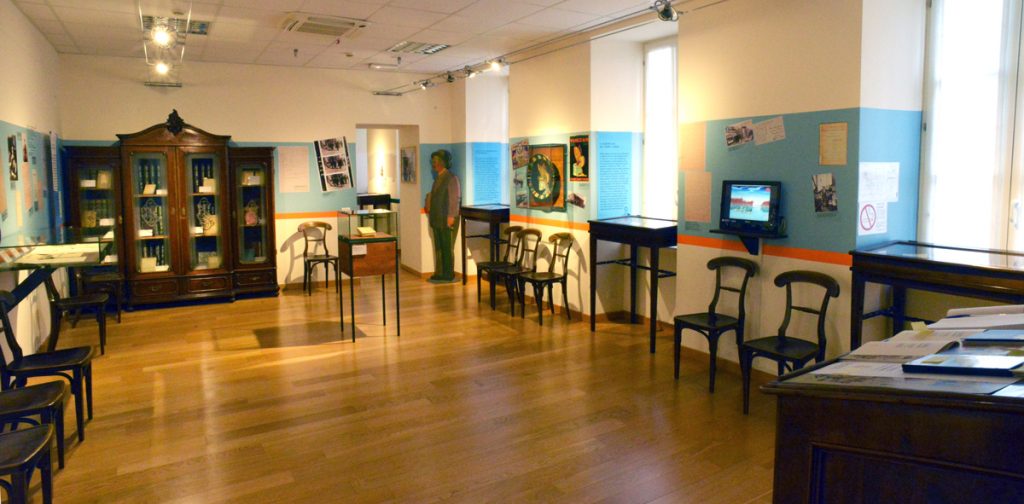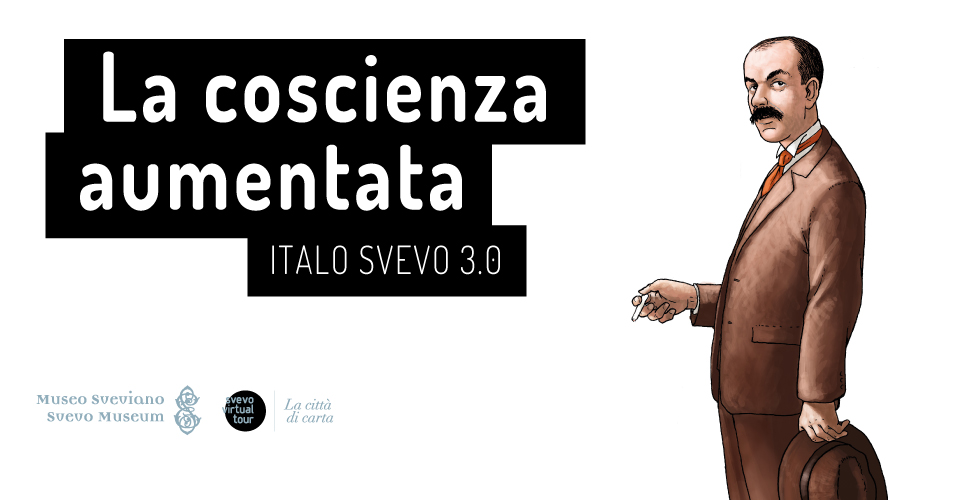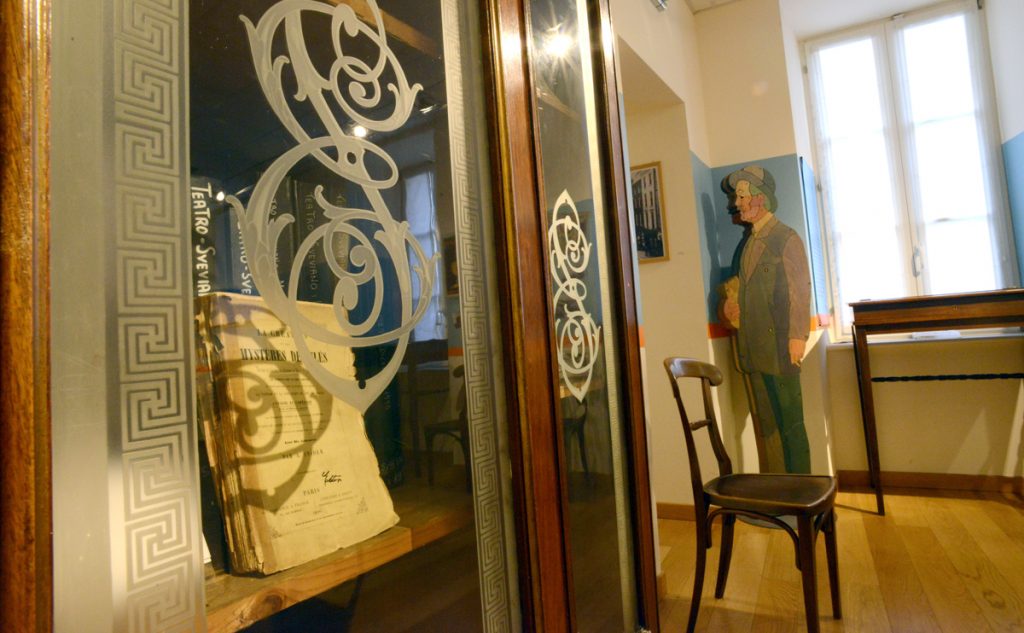
The Museum – which was made possible thanks to the generous bequest of the writer’s manuscripts, correspondence and personal effects by his daughter, Letizia Svevo Fonda – was inaugurated on December 19, 1997 (Svevo’s birthday).
It is located on the 2nd floor of the Trieste Public Library, which the Triestine writer frequented as a young man and which is described in Una vita.
Scoperse la biblioteca civica e quei secoli di cultura messi a sua disposizione, gli permisero di risparmiare il suo magro borsellino. Con le sue ore fisse, la biblioteca lo legava, apportava nei suoi studii la regolarità ch’egli desiderava. […] In biblioteca fece poche conoscenze. Entrava nella lunga sala di lettura tutta occupata da tavoli disposti parallelamente, occupava un posto qualunque e per qualche tempo con la testa fra le mani era tanto assorto nella lettura da non vedere neppure chi accanto a lui sedesse. Dopo un’ora al più, la lettura affaticante gli ripugnava, per qualche tempo ancora vi si costringeva e cessava quando la mente più non afferrava la parola che l’occhio vedeva; usciva non appena deposto il libro e dopo quell’ora passata con gl’idealisti tedeschi, gli sembrava sulla via che le cose lo salutassero.
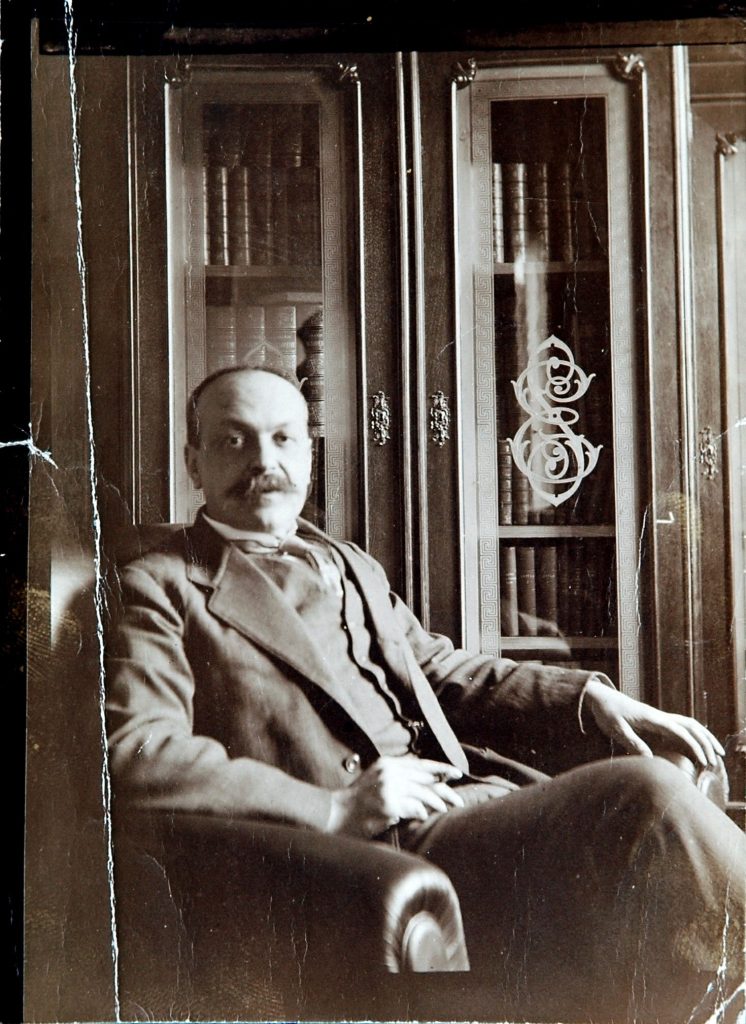
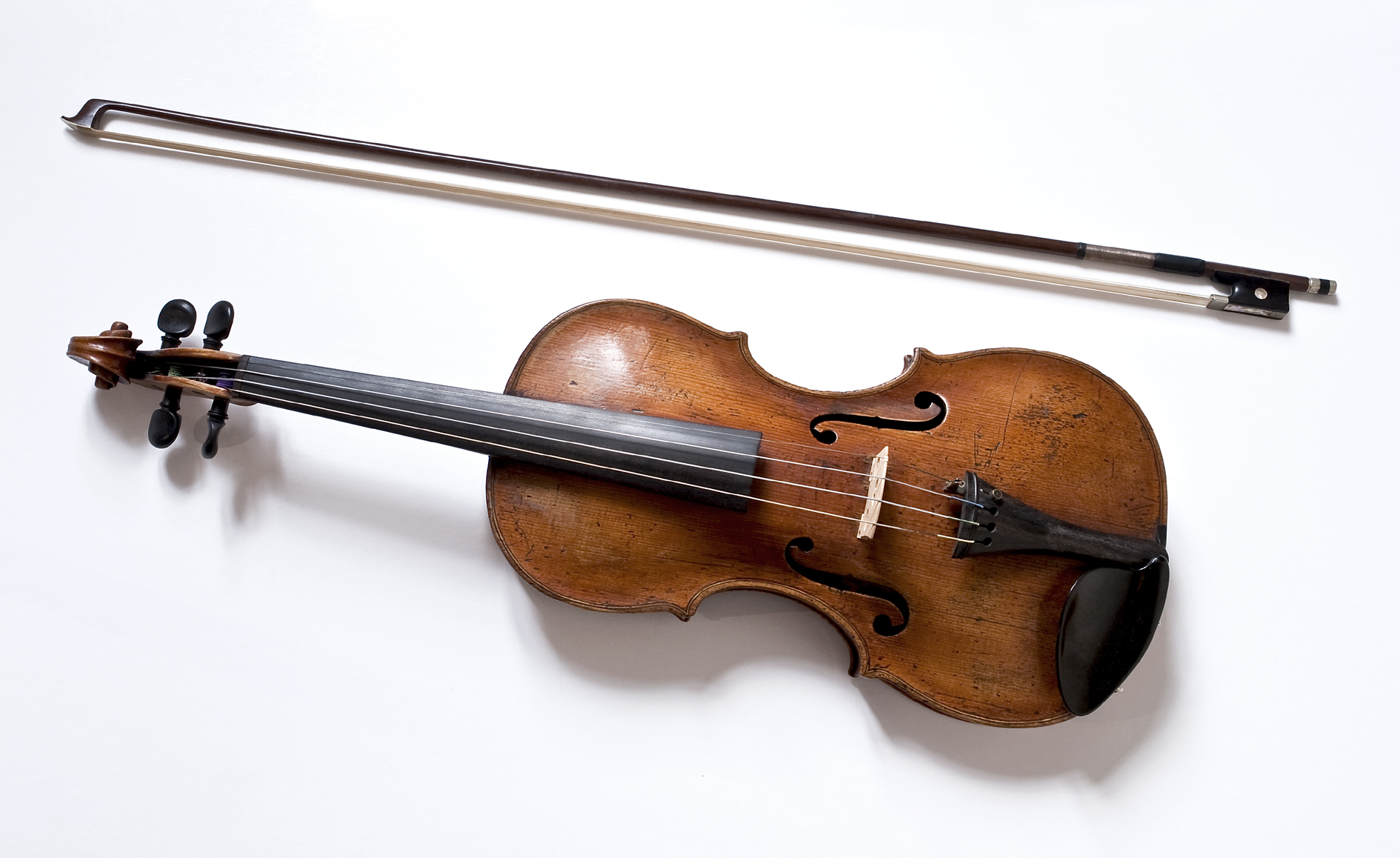
Svevo’s violin, which he played both at home and in private local performances with his quartet, and the gold fountain pen Livia gave him to mark their engagement. The pen has given rise to a curious debate, for one of Svevo’s last plays bears the inscription ‘with the gold pen’, and critics are in disagreement as to whether this is the title of the play or merely a reference to the pen used in writing it.
Few of Svevo’s personal effects have come down to us because the Veneziani villa and adjoining factory were destroyed by an Allied bombardment on February 20, 1945. The bombardment also destroyed most of Svevo’s library, forcing scholars to make educated guesses when attempting to reconstruct it.
A few books have survived, however, including first editions of his own works, various volumes given as gifts to his wife during their courtship or in the early years of their marriage (Fogazzaro, Manzoni) and signed editions presented to him by other writers (Felice Cavallotti, Enrico Pea, Carlo Linati, Bonaventura Tecchi, Ivan Goll, Giacomo Debenedetti, etc.). Most of these are dated 1927-28, and it’s unlikely that Svevo ever found the time to read them. Of particular interest are two books which Svevo definitely owned and read: Conrad’s Heart of Darkness and Suggestion et autosuggestion by Charles Baudouin
